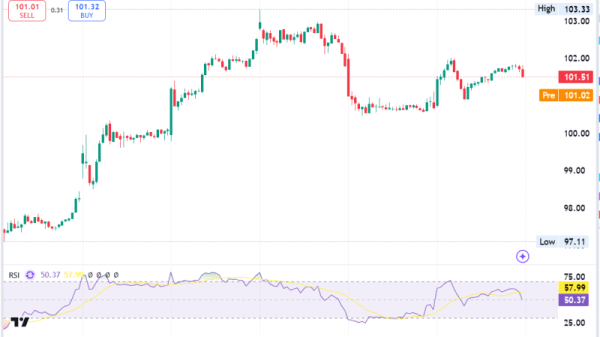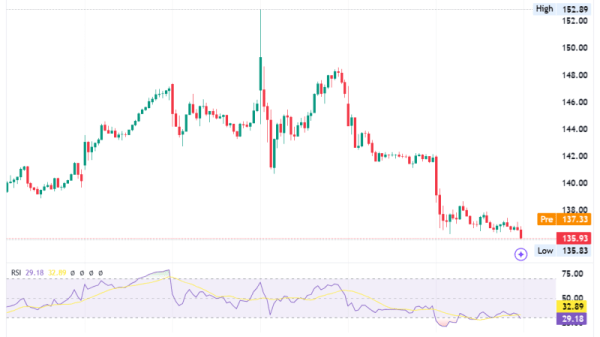LONDON, Nov 29 (Reuters) – Non-bank financial institutions such as hedge funds remain vulnerable to a sudden financial shock and would not all be able to access the funding they would need in such a crisis, the Bank of England said on Friday.
Announcing the results of its first system-wide test of Britain’s financial firms, the BoE said the growing non-bank financial sector has increased its resilience.
But its reliance on bank funding in a crisis could lead to “greater risks for financial stability,” it said.
Unlike typical stress tests which look at how big banks’ or other financial firms’ balance sheets fare during a crisis, the
BoE’s System-Wide Exploratory Scenario examined how the actions of the whole network of financial firms, including banks, funds, insurers and central counterparties, could amplify shocks.
The scenario envisaged a hypothetical situation in which “a sudden crystallisation of geopolitical tensions” led to a sudden and severe market shock.
Such a scenario may be more likely following the U.S. presidential election victory of Donald Trump who has repeatedly threatened to impose tariffs on foreign imports, that could in turn increase trade and political tensions with countries such as China.
The results of the BoE’s exercise highlighted continuing risks in the non-bank financial institutions sector, with many such firms expecting to be able to rely in a crisis on so-called repo financing from banks that would be unlikely to be available.
Non-banks needed to meet some 94 billion pounds worth of margin calls in the scenario, the BoE said, forcing some players such as hedge funds to sell assets where bank funding was not available.
The sterling corporate bond market would also come under pressure, the BoE said, as funds looking to raise cash dumped corporate bonds into a falling market, leading to a “jump to illiquidity” with insufficient buyers.
While the exercise was designed more to inform firms about the risks than to lead to direct policy action, the BoE said its conclusions supported the broader work of the international regulators to better understand and regulate the growing non-bank sector.
Regulators worldwide have been scrutinising more closely the non-bank sector, which now accounts for about half of the global financial system, after several incidents where such firms have needed support in recent years.




































